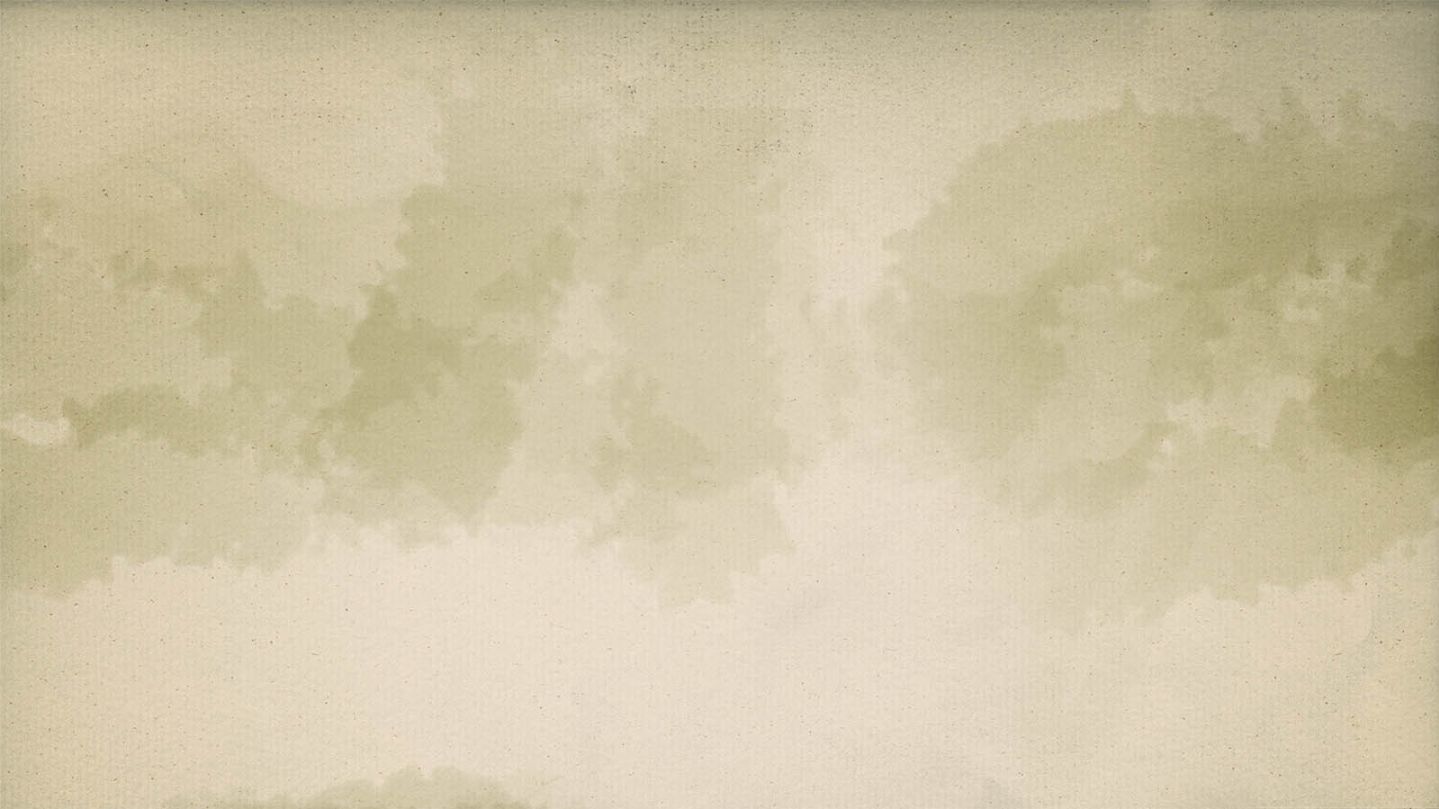Editor’s Note: Kayla Harrison is a two-time Olympic champion who, at London 2012, became the sport’s first American Olympic gold medalist. Four years later, in Rio, she retained her Olympic title. Ahead of the 2017 World Judo Championships in Budapest, which runs from August 28 to September 3, Harrison writes exclusively for CNN Sport.
Story highlights
Harrison was first American to win Olympic gold in judo
Ohio native ended career with two golds
She is considering fighting in MMA
Judo saved my life.
The sport gave me a goal, gave me something to wake up for. If I didn’t have that when I was a teenager, I might not even be here.
When I was 16, having just moved to Boston to train with the Olympic coaches Jimmy Pedro and his father, I’d also just revealed to my mom that my first coach had sexually abused me. It was a tumultuous time.
Everyday I thought about quitting the sport.
I thought about running away, of being a Barista in New York where no-one would know me or look at me.
I struggled with thoughts of suicide for years, during the abuse and after the abuse, but having a goal – the dream of being an Olympic champion – and strong people around helped in my darkest hour.
Kayla Harrison: The career of a double Olympic champion
‘A 16-year-old car wreck’
It speaks volumes about my coaches and my teammates that they were able to drag me from rock bottom to the pinnacle.
When I was first in Boston living with the judo team, I didn’t want to lift weights, I didn’t want to go to school, or go to therapy, but I had no choice. If I wanted to be in the judo house I had to follow the rules.
There were days when my teammates would drag me out of bed and drive me to school and they would watch me walk through the school doors.
Jimmy, the coach, didn’t usually take kids who were under 18, but these were special circumstances. My mom had nowhere else to go and I’m really thankful he said OK. A lot of people wouldn’t have considered having a 16-year-old car wreck.
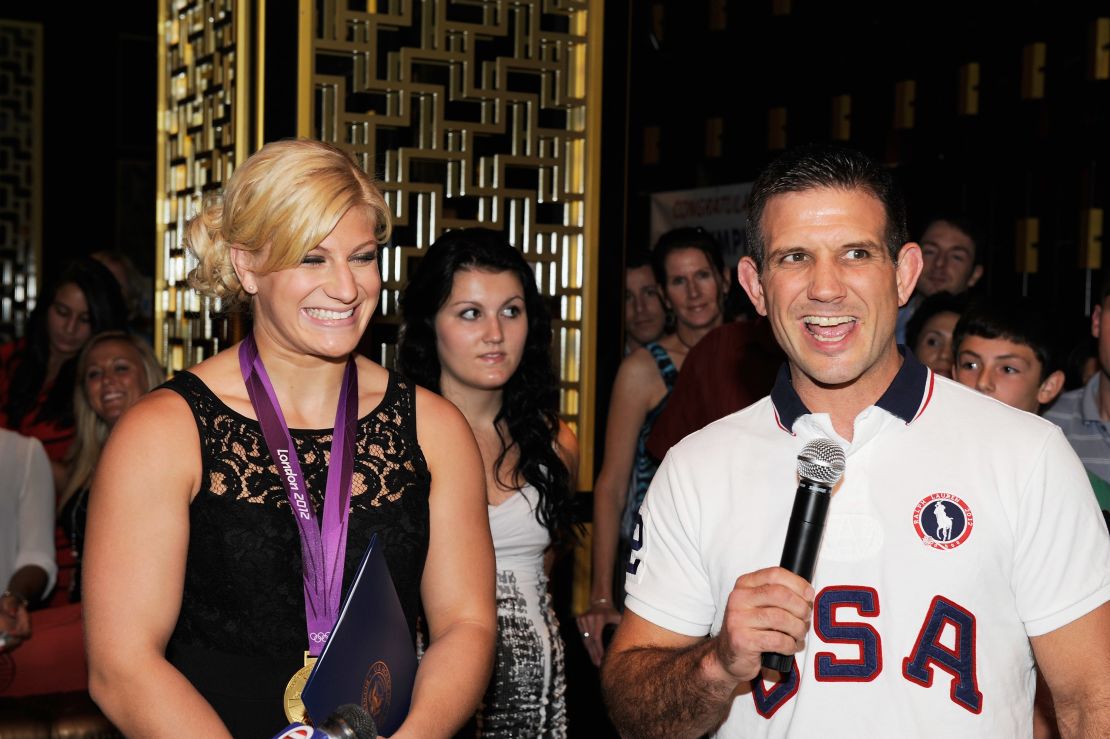
I had to pay the rent so I worked in a hardware store for 50 hours a week, as well as going to school and training, before eventually working at the judo school and that is when judo became work and play.
I’d always dreamed of being an Olympic champion. From the age of six I wanted to be the best in the world at something.
When I was little, I saw a karate commercial on TV and so I was running around, kicking things in the house, breaking them, and my mom – who did judo as self defense – decided that, if I was going to do martial arts, judo was the safest.
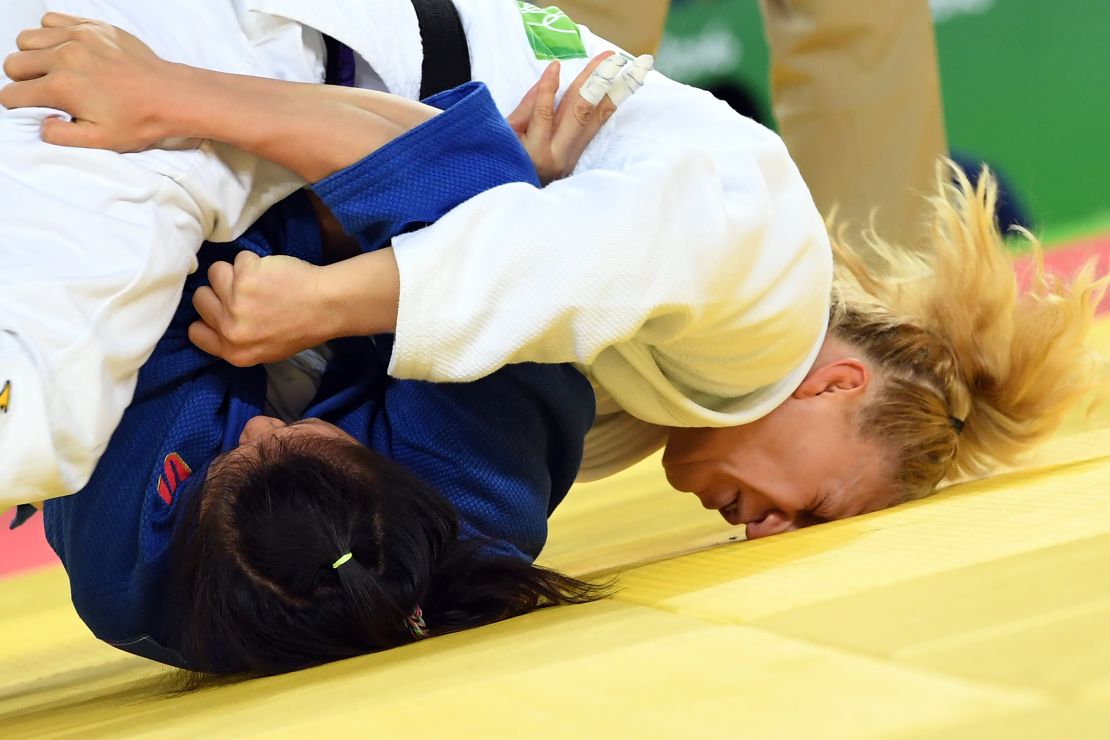
READ: A guide to ‘the gentle way’
And from the first time I stepped on the mat I just loved it. I was hooked.
I loved having to bow, I loved flying through the air without getting hurt and loved learning to throw the boys!
A sexist comment, a playground tussle
But I also loved judo because judo made me feel special.
Nobody from my school really knew what judo was and I remember teaching the kids all these throws. I was the cool kid.
In high school my nickname was “Judo.” “What’s up, Judo?” my friends would say.
I got to go to tournaments at weekends. They were only in Indiana, which was just two hours away from my home in Ohio, but it was still exciting, still special.
Fast-forward 20 years and I’m traveling all over the world with my best friends doing what I love for a living.
It’s often assumed that people try to fight me all the time, but the only time I’ve been in a fight was at school when I was six years old.
I was in the playground and a friend wanted me to show him a throw, then he wanted me to show all of his friends! I showed this boy a throw and he stood up and pushed me, so I threw him again and we started to tussle.
A teacher came over and I’ll never forget what she said. “It’s one thing seeing one of the boys wrestling,” she shouted. “But I come over and see a pony tail, Miss Harrison!”
At the time, I was mortified. I’d never been in trouble. I cried when I arrived home and wrote a letter and apologized, that’s what the good kids did, but years later I realized I should have been allowed to wrestle.
It was such a sexist thing for that teacher to say and I don’t think it would have been said in this day and age, thankfully.
A lonely existence, living out of a suitcase
From a really young age everyone just assumed I was going to be successful. I don’t know why. I wasn’t even that good. I didn’t win a tournament during my first three years of doing judo – I didn’t even win a match – but I was really determined.
People believed in me so much. My teachers in middle school raised money for my first big international trip, which was in Estonia. I lost in the first round!
The thing people don’t truly understand about life as an Olympian is that it is not only about me. I’m not the only one who has made sacrifices. My coaches, my family, every doctor who has taped my knee or helped me recover from an injury, anyone who’s taken a fall for me or sparred with me, helped me be successful.
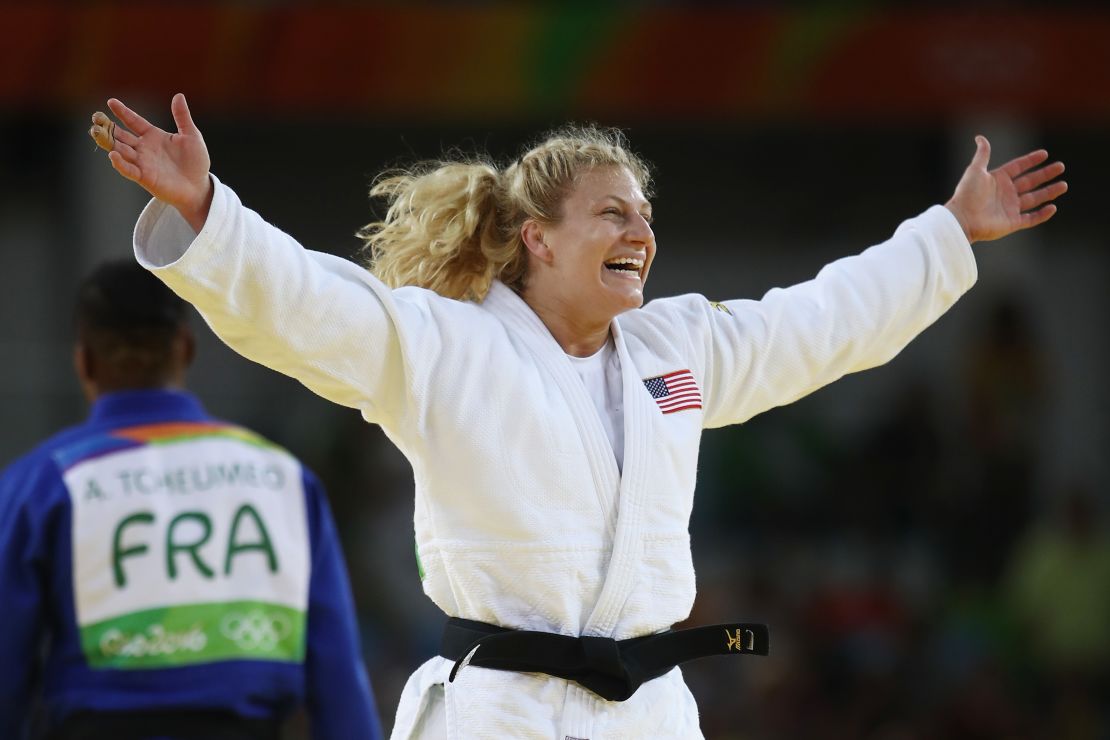
The life of a judoka is extremely grueling so you need that support. It can be a very lonely existence – it’s just you and another person on the mat.
And if you want to be successful, you have to do it for yourself. Judo in the US is not that popular yet, so I wasn’t doing it to be famous, rich or a national hero.
People think that I’m now a national hero, but for 20 years nobody knew my name.
It’s a hard lifestyle. I spent half my life living from a suitcase, going to Japan, Germany, the UK. You go where the competition is.
But I wouldn’t change a second of it because it gave a kid from a middle of nowhere town in Ohio a chance to see the world.
Post-Olympic depression, turning to MMA
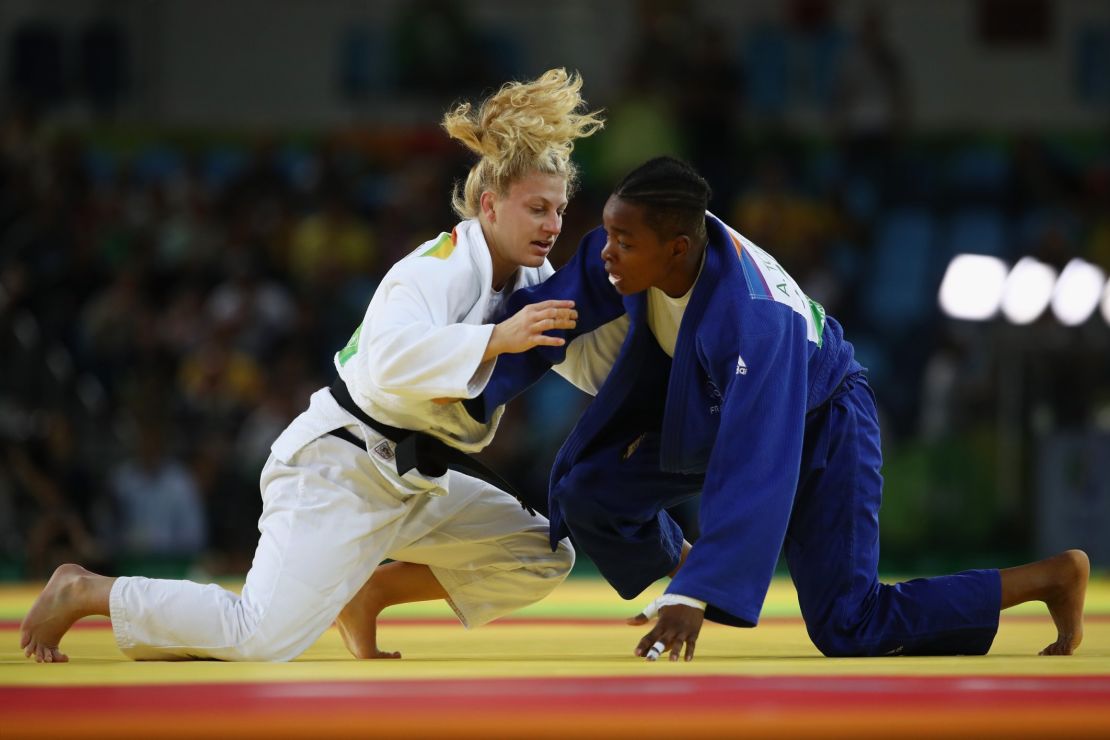
Now I’m retired, I’m just figuring out what I want to do with the rest of my life.
I didn’t really believe in post-Olympic depression. How can you be depressed after competing in the Olympics? But it’s real.
After winning gold in London, I knew I was going to Rio so I had a bit of fun, took time off, then it was back to training and the life I always knew.
But the night after I won gold in Rio I couldn’t sleep. I didn’t know who I was or what I was going to do with my life. Who was I without that discipline, those habits I had had for the last 10 years? Who is Kalya Harrison if she doesn’t have to wake up for practice? I didn’t know that girl.
I was definitely depressed for about six months. I met all my responsibilities, did all the media, but I would come home and the alarm would go off and my boyfriend would get up for work and I would just lie in bed. That was just not like me.
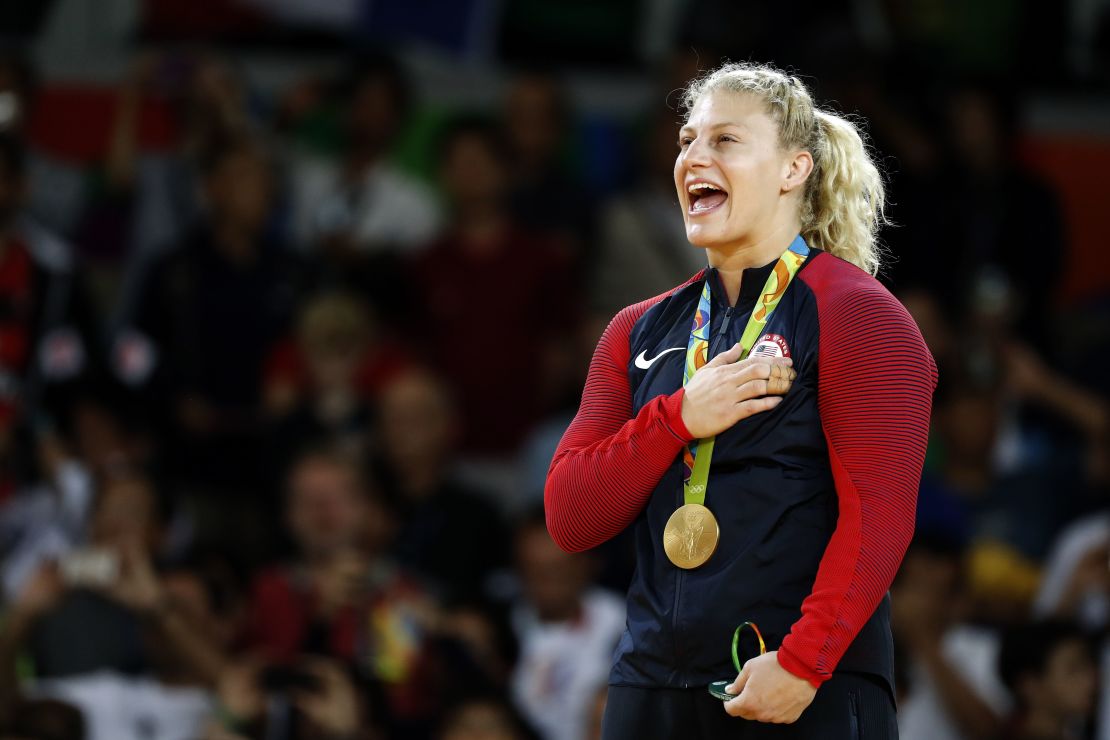
I still get some bad days, but I’m keeping busy.
I work out, I’m writing a book, I’m commentating for MMA, though it’s not the same as having one singular goal.
For years I’d wake up and there was a deadline, an Olympic gold medal to be won on August 2 and August 11, so to not have that goal is really scary.
I go back and forth on whether I’m going to compete in MMA because it’s so different to judo.
The first thing you do on a judo mat is bow to your opponent, the first thing you do in MMA is trash talk your opponent.
The Professional Fighters’ League is trying to change that, and I’m interested. They want to give their fighters a monthly salary and health benefits, and even in the fighters’ contracts it says the must not swear. That’s a much more feasible fit for someone like me.
I’ve been on the biggest stage in the world twice and thrived so no MMA fight is ever going to be as pressurized as training for years for one fight, which you could lose in three seconds.
But fighting in a cage is so different from being on a mat – I hate the cage. It hurts, it’s so unforgiving.
After my first cage practice I felt good, had a great workout, but woke up the next morning and my elbows, my back, my bum – everything – was bruised. Couldn’t it have been couch fighting!
Visit cnn.com/sport for more news and videos
I know I’m done with judo. I’ve achieved everything I wanted to, trained as hard as I could for 20 years and I’m burnt out.
But I do have some fire left in me. I believe I can have some form of an athletic career, but we’ll see. It’s an interesting time.
